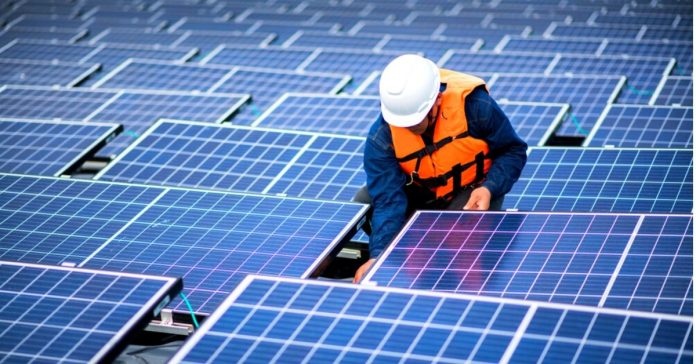If you have solar panels, regularly cleaning them is essential so they can operate at their full potential. Your location, weather conditions and the type of panels you have may affect how dirty they get.
For ground-mounted systems, it’s easy to get them cleaned with a garden hose. You may need a high-pressure hose nozzle and a cleaning solution for rooftop units.
Debris
Whether your solar panels are on a roof or the ground, they’ll need regular cleaning and maintenance. If left to build up, debris such as dust and pollen can reduce their energy efficiency.
Fortunately, water can remove most types of debris from your solar panels. However, if a heavy build-up of sand or grit doesn’t quickly come off, you can hire a professional for solar panel maintenance.
When removing debris, it’s best to use soap and water rather than abrasive cleaners. These may streak the glass and negatively impact the panel’s performance.
It’s also important to avoid using hot water on a panel that is already very warm, as this can cause it to crack or melt. Instead, choose a cool morning or an overcast day to clean your panels.
To remove debris, spray the surface with your cleaning solution and wipe it off with a sponge. Then, squeegee the panels to remove any excess moisture.
Ideally, you’ll need to do this about two to four times a year. However, depending on your location and environmental factors, you should do it more often.
Dust
Dust on solar panels can block sunlight from getting through to the panels, which can reduce their efficiency. It can make solar systems less efficient, which could cost you more money.
Most dust comes from outdoors, including pollen, soil, dead insects, sand, and dried-up debris from the ground. Birds and animals can also bring it in.
If your solar panels are in a dusty area, you should clean them frequently to avoid losing energy and increasing your costs. You can use a simple garden hose to remove light dust, but avoid high-pressure washers as they can damage the cells.
Cleaning can also help your system operate at its highest level. A recent study found that dust can reduce energy output by up to 30 percent after a month of build-up.
Depending on your panels’ material, you can wash them with a mild detergent, water, rubbing alcohol, or hydrogen peroxide. However, always consult your solar panel manufacturer’s instructions before cleaning or using harsh chemicals on your solar panels.
If you need to clean your solar panels, the best time to do it is early or late at night when it’s less hot. It will prevent your soap solution from drying on the panels and help avoid streaks.
Water
Solar panels can be hard to keep clean because of their delicate materials. They could malfunction or suffer damage if they are not adequately maintained.
Water can help remove dirt and other contaminants from a solar panel’s surface. But this is only sometimes an effective solution.
Using the correct type of water when cleaning your solar panels is essential. Using rainwater or tap water can cause damage to your panels and can leave streaks on the glass.
Instead of rainwater, try a cleaner made specifically for cleaning solar panels. The cleaner should be diluted with water and applied to the panel’s surface with a brush or sponge.
Whether washing your solar panels with water or using a cleaner, it’s best to do so in the morning or early evening before the sun gets too hot. It will prevent your soap solution from drying on the panels and help keep any streaks from forming.
If your solar panels are tilted, you can use a squeegee to direct water onto them. Start at the top end of your panel and apply light to moderate pressure as you draw the squeegee down to the bottom.
Alternatively, you can spray your solar panels with water from the ground. But you’ll want to ensure that the water only goes onto the top of your panels.
Pollen
Pollen is a sticky substance that accumulates on solar panels, which can negatively impact their performance. You can remove pollen from solar panels with a soft cloth or brush. You can also use a hose with a low-pressure nozzle to rinse the panels.
The first thing to do is figure out what type of dirt and grime your solar panels have accumulated. Do they have pollen, bird droppings or any other noticeable build-up? If they do, you can start using a soft brush and soapy water to wipe away the debris.
You can then use a hose with a low-pressure spray nozzle to wash the pollen and other residues off your solar panels. Rinse the solar panels thoroughly so that no debris remains behind.
Another effective way to clean pollen is warm water and white vinegar. The acetic acid in the vinegar can help remove the residue while not damaging your solar panels.
Depending on how dirty your solar panels are, you may need to repeat this process several times. Remember to rinse the panels after each session, as well.
Although regular dusting and pollen do not significantly affect the efficiency of your solar panels, they can become a nuisance as they accumulate along the bottom edges of the solar panels. Over time, this can significantly reduce the amount of sunlight reaching the photovoltaic cells on the solar panels and impair their ability to produce electricity.
Read also : newsobtain










